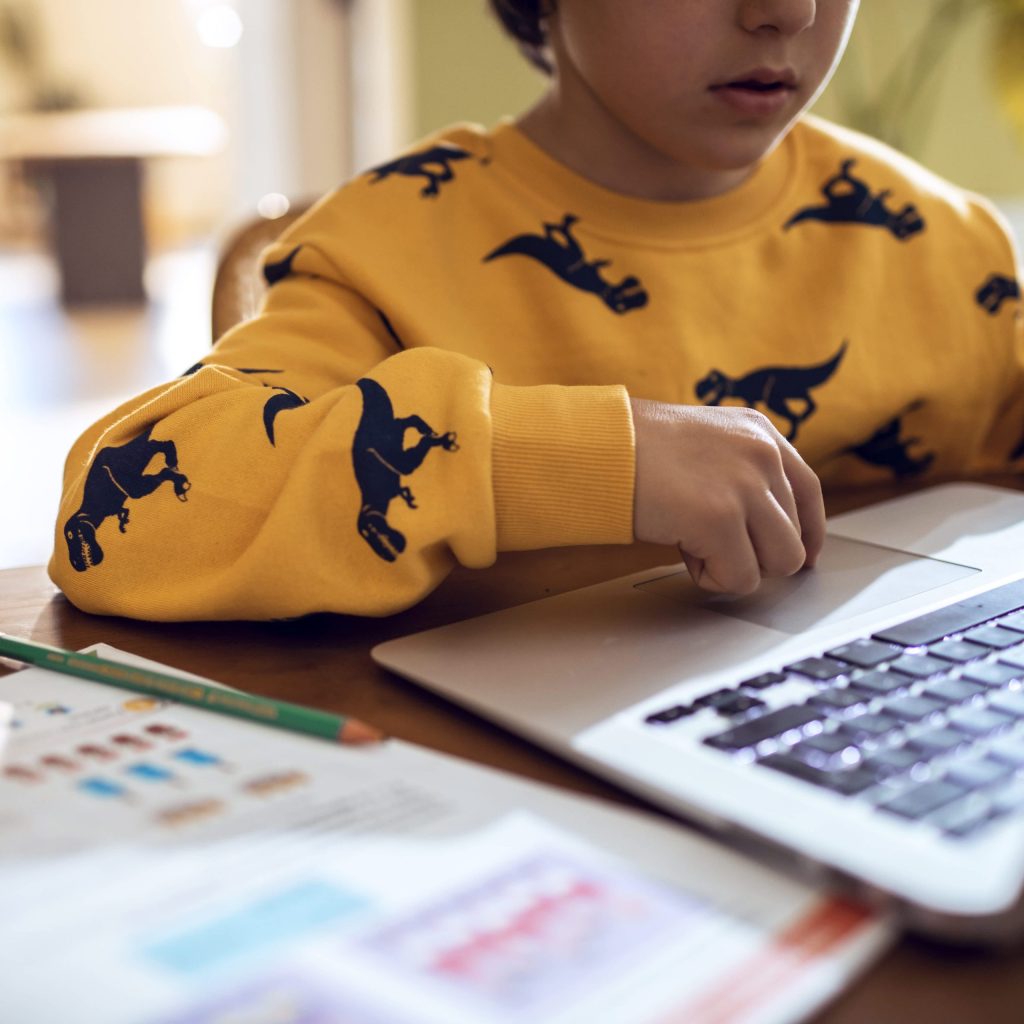This morning, I try to get my twins to draw their favorite animal, an assignment we were supposed to have done for kindergarten yesterday. One sobs because her deer does not look like a deer. I want to sit with her but I forgot to print the alphabet for today and I can’t find the password to GoogleClassroom and I don’t know which app is for math. I squeeze my eyes shut and whisper, “I am doing the best I can” – and I almost believe it. I have a PhD in education. I am supposed to be able to figure this out. Professionally, I run parenting groups for families raising spirited kids who want to parent gently and positively. I have written papers on digital literacy, and I regularly consult with school districts on how to support social emotional development during distance learning. And yet, I am failing distance-learning kindergarten.
The biggest issue is that in order for my twins to participate, they need an extraordinary amount of support from me that reaches far beyond the darling study area I set up for them over the summer. This is challenging for me as their full-time working mother, but their experience is even more acute: they are stripped of a sense of agency and power. They’re small learners whose bodies and hearts are built to do almost none of the digital things we now ask of them on the daily.
There is one child in our class who always has his homework done, so I call his mother to ask for advice. She explains, “I have him do what I can and then I just finish it for him to help the teacher check all the boxes.” I am struck by the inequity: having a mother with the time to “check all the boxes” results in shining teacherly praise. When I enrolled my children in kindergarten, I imagined budding friendships and new experiences. I did not imagine purchasing iPads. I did not imagine the dissonance in my heart as I beg my children to stay on the Zoom for just 10 more minutes even when I can tell they are not learning. I did not imagine that tears – mine and theirs – would be the defining emotional tenor of our kindergarten experience.
Related: The Pandemic May Have Long-Term Effects on Our Kids' Mental Health
My tears are rooted in exhaustion, in a plate so full that it is breaking. Their tears are rooted in a loss of agency, in grief for something they have not even experienced. I have decided, as I work to nourish their little spirits, to let go. I have decided to spend time playing in the creek instead of doing the math app. Just today, I got last-minute word of a 15-minute reading session with the teacher. I decided to let it go – even though I could feel the grip of “you are not doing everything you can to help your children learn” squeeze my heart – because organizing it would have been extremely stressful.
What is going to let all of our children move through this challenging time with open hearts is not, in fact, reading with the kindergarten teacher for 15 minutes on Zoom. It is not doing endless math worksheets, and it is not whether I can check all the boxes as well as that other mother. What is going to get us all through is each parent grounding into ourselves, showing up the best way we know how, and letting the rest go. From saying “I am the best mother for this family and it is good to model how to do less.” Being able to do this takes some pretty significant emotional resiliency from me as their mother. It is coregulation at its best, and when we slow down and get present with our little ones, it is often healing to our own overtaxed hearts as well.
When we make the active decision to let go of that which is too much, we use our own sense of calm to help children thrive. Instead of doing all the apps, I take my kindergarteners outside and teach them about different local birds. A member of our community brings a strawberry basket full of feathers and tells us which ones are turkey feathers, chicken feathers, bluejay feathers, or which ones she doesn’t know. The children organize the feathers, feel them, and hunt for more. Their agency is restored in this natural world, their sense of power again at the center of their experience. Tomorrow, we will write thank you letters, and they will deliver them. This, too, is learning. This, too, is kindergarten.
Learning happens inside of these relationships with me, with each other, with the community. These moments are fundamentally at odds with the wild frustration sparking inside of me each time we can’t log on, forget a password, or miss seven zillion assignments. As I often tell other parents, what matters most is your relationship with your child. It is the sacred ground from which learning, mattering, wondering and hope spring – as I’m often reminding myself. If you, like me, need someone to tell you it is OK to let the rest go, please tell them Dr. Hauge-Zavaleta signed your permission slip.

